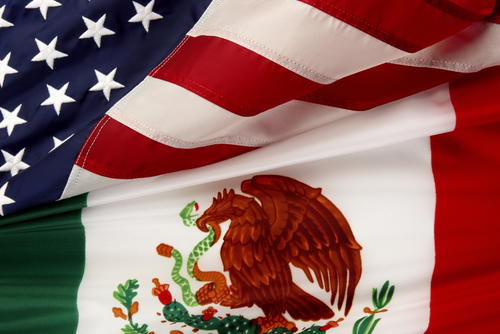
By vowing not show up for work Monday for “a day without immigrants,” Mexicans in the United States certainly would have pleased the delegates who first consecrated May Day during the 1889 International Socialist Congress.
Last month, Mexico’s President Vicente Fox beat the May Day crowd to the punch when he hosted President Bush and Canada’s Prime Minister Stephen Harper in Cancún. During their two-day summit, Mr. Fox made clear just what is on Mexicans’ minds: Canada and the U.S. must accept even more Mexican workers and grant them more “rights.” This is nothing new. Since Presidents Bush and Fox were first elected in 2000, Mr. Fox has fired a barrage of demands at the White House.
Mexico’s demands on the United States have become part of the great immigration debate. What has not surfaced in the public discourse is the sad state of the Mexican economy and Mexico’s embrace of a communist-era economic strategy lifted from Marshall Tito’s Yugoslav playbook.
Under the communists, Yugoslavia couldn’t produce enough jobs to fully employ its labor force. To solve Yugoslavia’s surplus labor problem, strongman Tito came up with a simple, but ingenious, economic strategy: open the borders, at least by Soviet bloc standards, and export surplus labor. This plan worked like a charm. At its peak in the early 1970s, there were over a million Yugoslavs, about 11 percent of the labor force, working in Western Europe. And the hard-money remittances (primarily German marks) that they sent back home amounted to as much as 30 percent of Yugoslavia’s exports.
Like Yugoslavia, Mexico’s economy is stuck in a variety of statist rut. According to the World Bank’s “Doing Business in 2006” report, Mexico’s labor market is simply dysfunctional. Of the 155 countries covered by the report, Mexico ranks 125th in terms of the difficulties faced by businesses in hiring, employing, and firing workers. It’s not surprising that Mexico is on a slow growth path and that it can’t produce jobs.
Rather than modernize the economy, Mexico’s politicos have embraced a Tito-inspired strategy: When incapable of fostering productive jobs, export the labor force. As a result, over 27 percent of Mexico’s labor force now is working in the United States, and these workers are sending home $20 billion in remittances. That amount equals one-third of the total wage earnings in the formal sector of the Mexican economy and 10 percent of Mexico’s exports.
Rather than modernize the economy, Mexico’s politicos have embraced a Tito-inspired strategy: When incapable of fostering productive jobs, export the labor force.
Author Steve H. Hanke

0 responses on "Mexico Sticks with Tito’s Playbook"